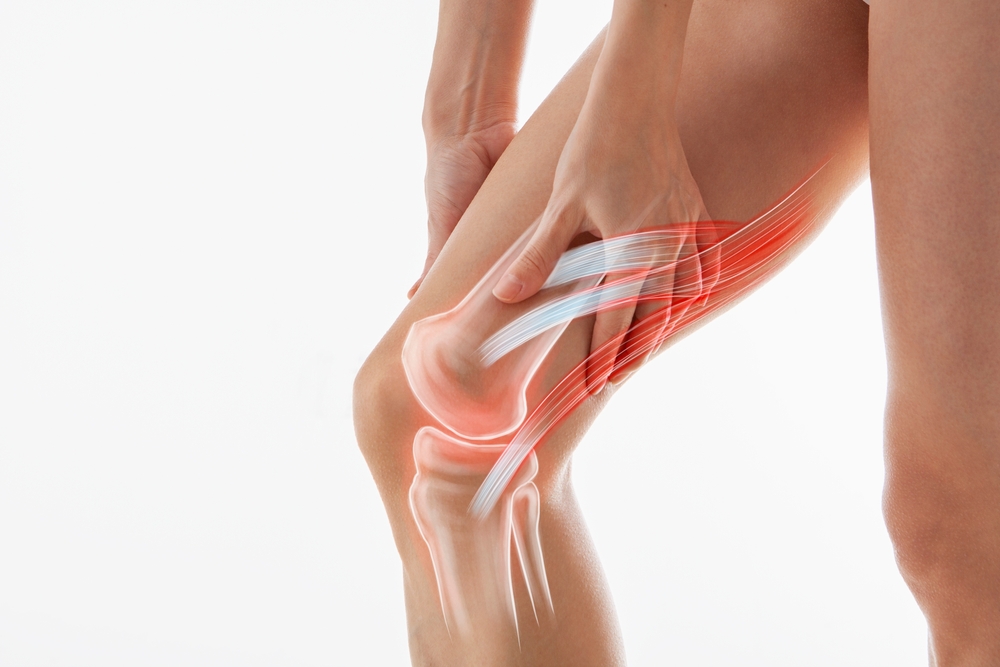
Knee pain is a common and often debilitating condition that can significantly impact your quality of life. Whether it's a dull ache, a sharp stabbing sensation, or a constant throbbing, knee pain can make even the simplest of tasks, like walking or climbing stairs, a challenge. Understanding the underlying causes and symptoms of your knee pain is the first step towards finding effective relief.
Causes and Symptoms of Knee Pain
Knee pain can arise from a variety of factors, including:
• Injury: Sudden trauma, such as a sports-related injury or a fall, can damage the structures within the knee, leading to pain and inflammation.
• Osteoarthritis: This degenerative condition involves the gradual wear and tear of the cartilage that cushions the knee joint, causing pain, stiffness, and reduced mobility.
• Overuse: Repetitive activities, such as running or jumping, can put excessive stress on the knee, leading to inflammation and pain.
• Underlying medical conditions: Certain health issues, such as rheumatoid arthritis or gout, can also contribute to knee pain.
The symptoms of knee pain can vary widely, depending on the underlying cause. Common symptoms include:
· Aching or throbbing pain
· Stiffness and reduced range of motion
· Swelling and inflammation
· Instability or "giving way" of the knee
· Difficulty bearing weight or walking
If you're experiencing persistent or severe knee pain, it's important to seek medical attention to determine the root cause and develop an appropriate treatment plan.
Diagnosing the Underlying Causes of Knee Pain
Diagnosing the underlying cause of your knee pain is a crucial step in developing an effective treatment plan. Your healthcare provider will typically begin with a physical examination, assessing the range of motion, stability, and any visible signs of injury or inflammation.
Once the underlying cause of your knee pain has been identified, your healthcare provider can work with you to develop a personalized treatment plan that addresses your specific needs.
Personalized Treatment Options for Knee Pain
Treating knee pain often requires a multi-faceted approach, as the most effective solutions are tailored to the individual and the specific cause of their discomfort.
Platelet-rich plasma (PRP) therapy is a non-surgical, regenerative treatment that can be highly effective in reducing knee pain and promoting healing. PRP involves extracting a small sample of your own blood, which is then processed to concentrate the platelets and growth factors. This concentrated solution is then injected directly into the affected area of the knee, where it can stimulate the body's natural healing processes and reduce inflammation.
Hyaluronic acid is a naturally occurring substance found in the fluid that lubricates and cushions the knee joint. When the body's natural supply of hyaluronic acid becomes depleted, it can lead to increased friction and wear and tear within the joint, resulting in pain and reduced mobility.
Trigger point injections are a targeted treatment approach that can be highly effective in addressing the root cause of knee pain. Trigger points are areas of muscle tension or spasm that can refer pain to other parts of the body, including the knee.
Shockwave therapy is a non-invasive treatment that uses high-energy sound waves to stimulate the body's natural healing processes. This therapy can be particularly effective in treating chronic knee pain, as it can help to reduce inflammation, promote blood flow, and stimulate the regeneration of damaged tissue.
The Benefits of a Non-Surgical Approach to Knee Pain Treatment
One of the key advantages of the treatment options discussed above is their non-surgical nature. Unlike traditional surgical interventions, these treatments are minimally invasive and can be performed in an outpatient setting, often with a relatively short recovery time.
By focusing on a non-surgical approach, you can avoid the potential risks and complications associated with more invasive procedures, such as infection, scarring, and prolonged downtime. Additionally, these treatments are often more cost-effective and can be more accessible to a wider range of patients.
Additionally, a non-surgical approach to knee pain treatment can help to address the underlying causes of your discomfort, rather than just masking the symptoms. By promoting healing, reducing inflammation, and restoring the natural function of the knee joint, these treatments can provide long-lasting relief and improve your overall quality of life.
Taking Control of Your Knee Pain
Knee pain can be a debilitating and frustrating condition, but with the right treatment approach, you can take control of your symptoms and regain your mobility and independence. By understanding the underlying causes of your knee pain, seeking a proper diagnosis, and exploring personalized treatment options, you can embark on a journey towards lasting relief and improved overall well-being.
Don't let knee pain hold you back any longer, schedule a consultation with ReAlignMed to explore the best treatment options for your unique needs. We can develop a comprehensive plan to address the root cause of your discomfort and help you reclaim your active lifestyle. Visit our office in Chicago, Illinois, or call (773) 665-4400 to book an appointment today.




